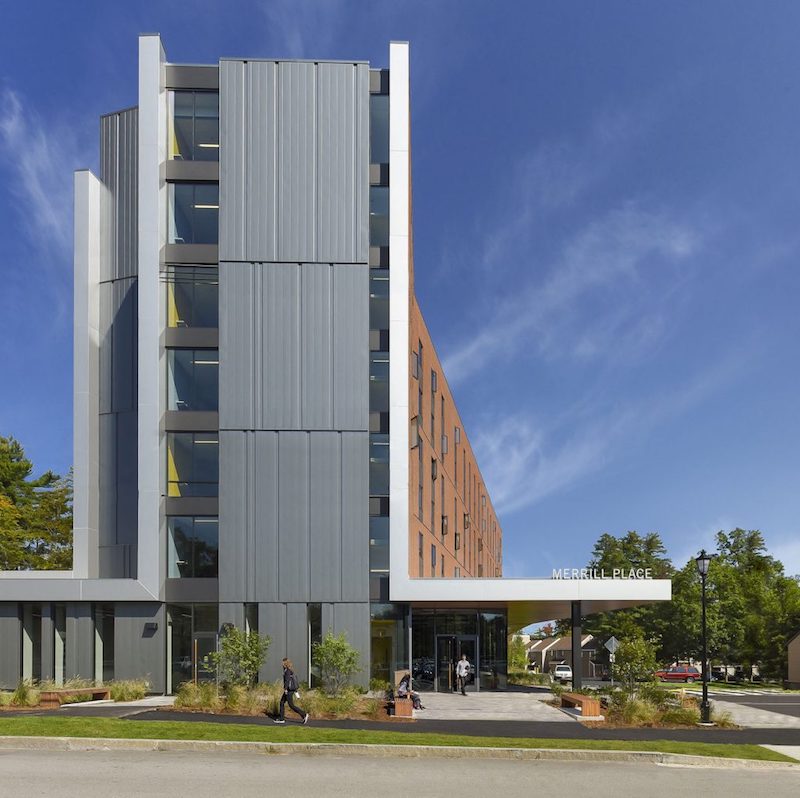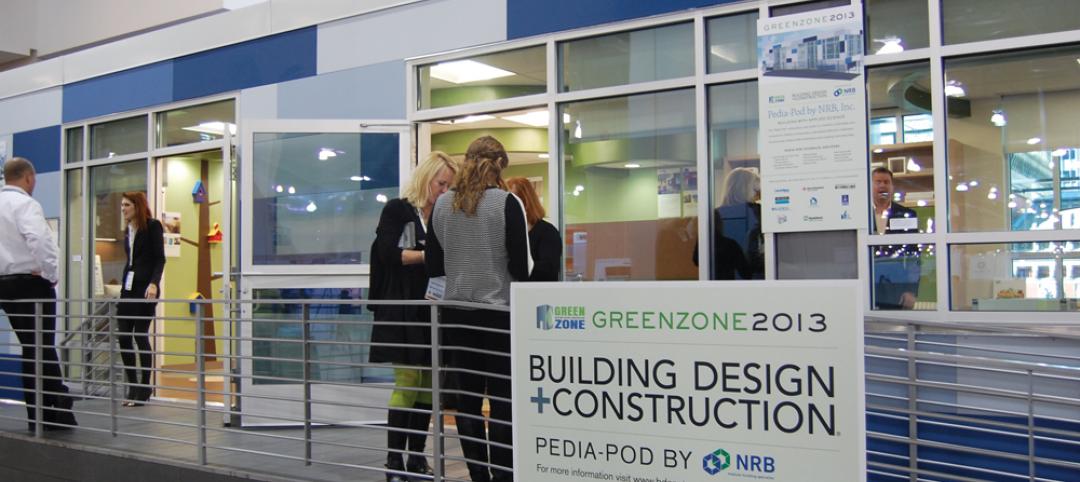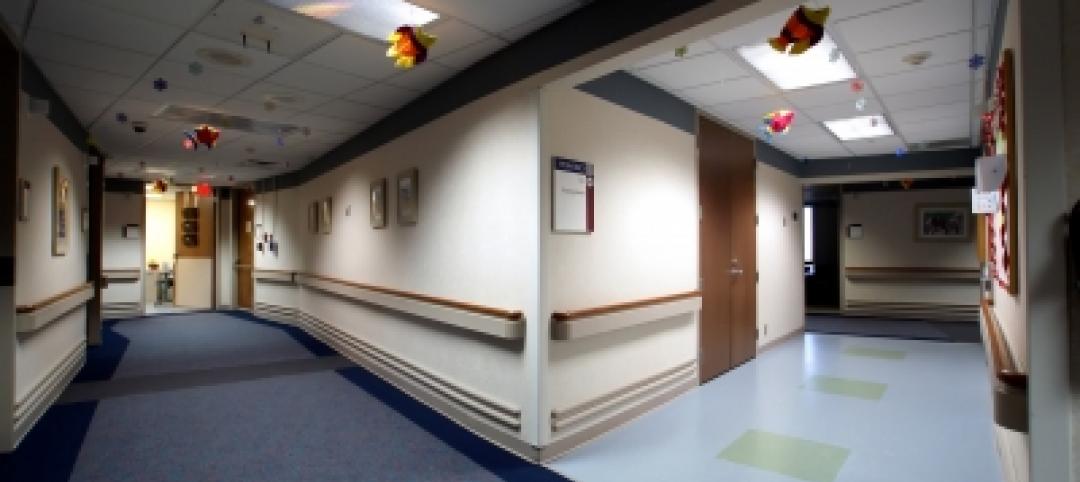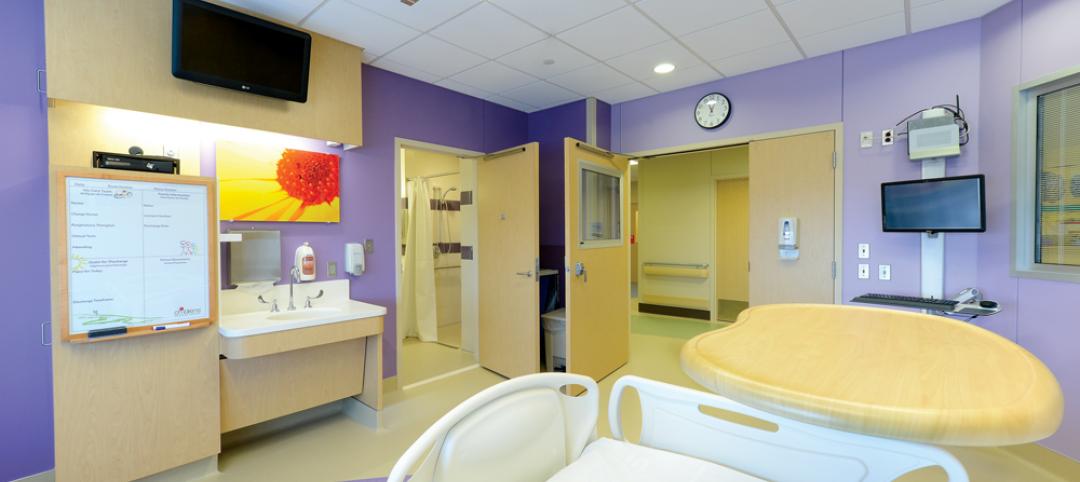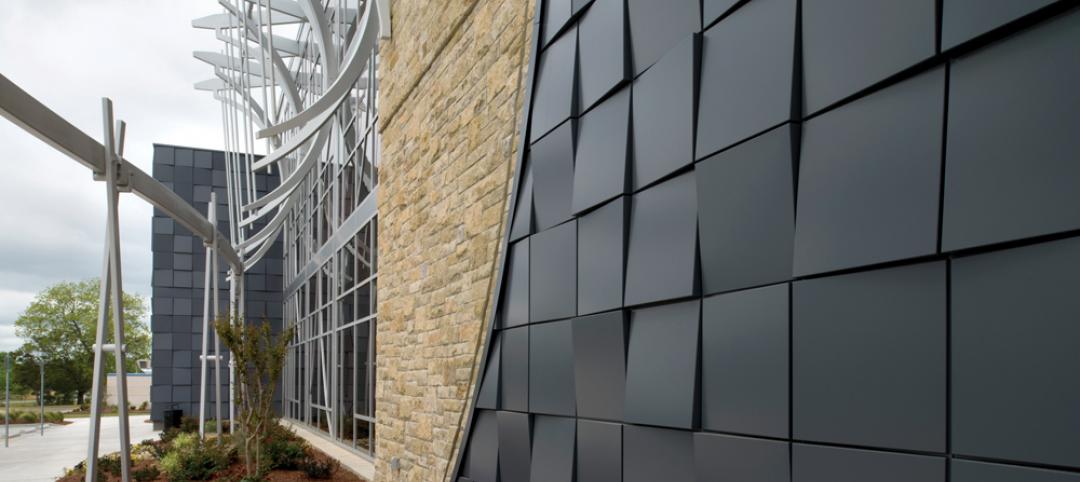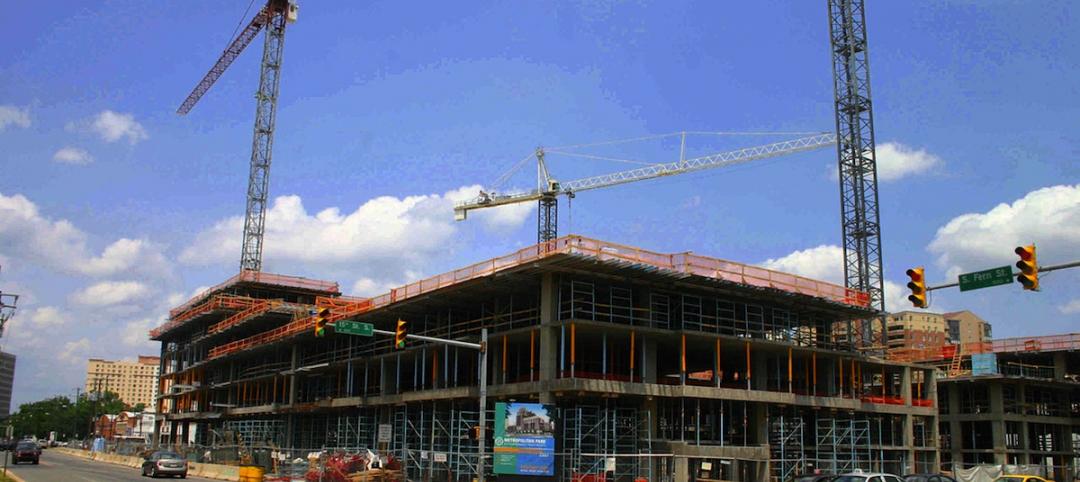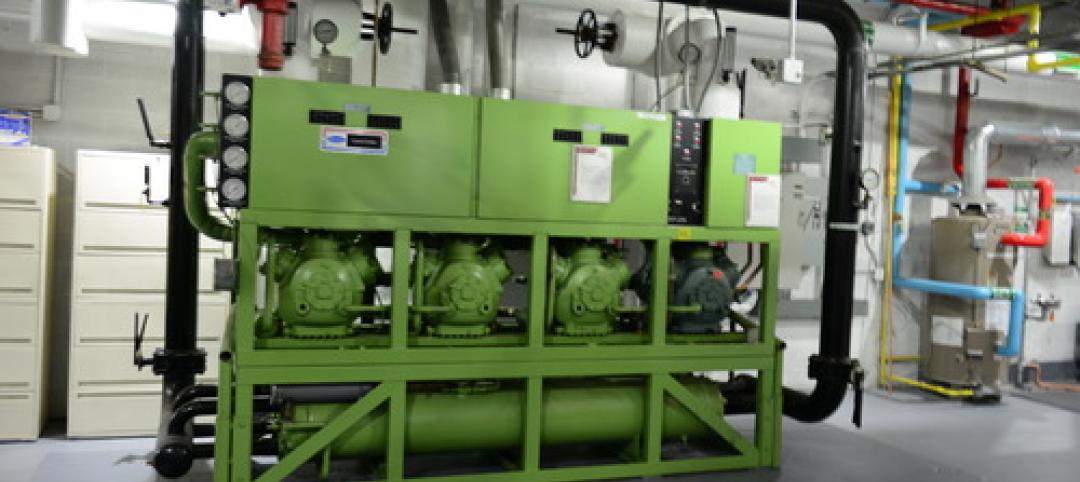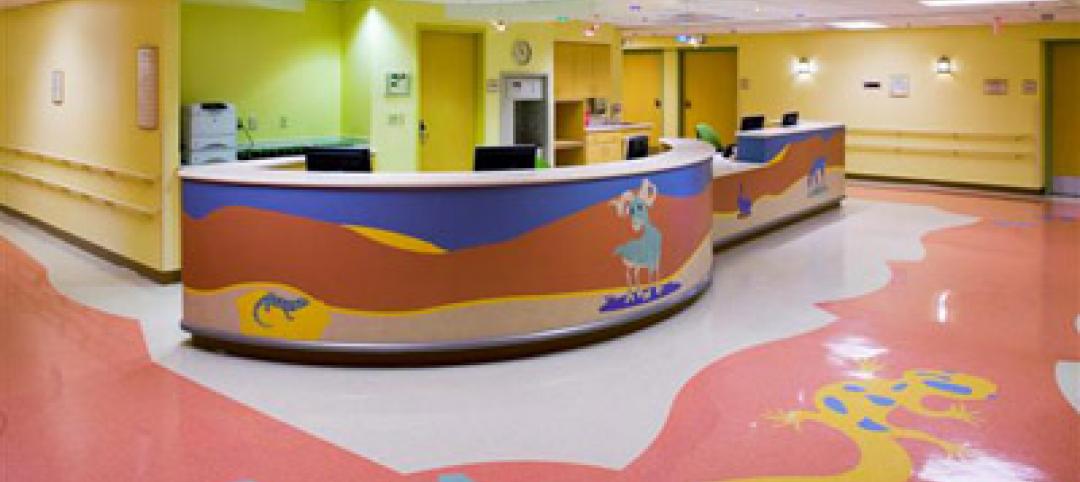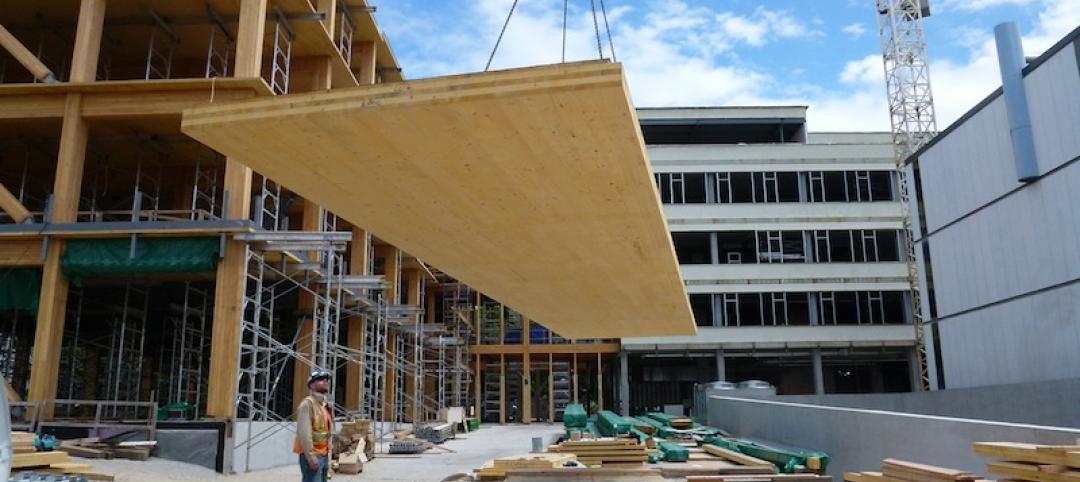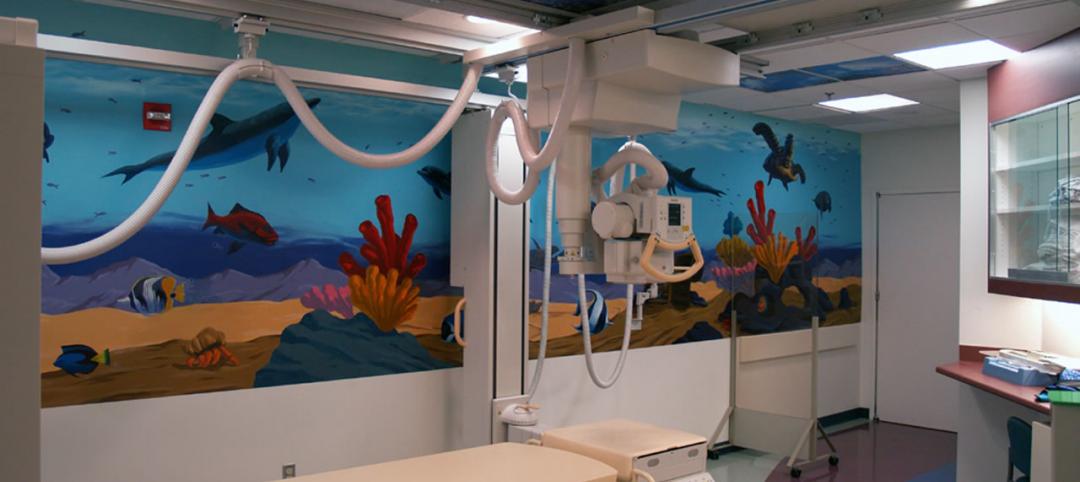Colleges and universities are constantly looking for new revenue streams. Plymouth State University in New Hampshire is taking the hospitality route: Its newest residence hall, the 96,000-sf Merrill Place with 345 beds, will convert to a 188-key hotel during summer months.
The new residence hall, which opened last August, includes a 4,300-sf conference center that has been consistently booked, to the point where Perkins + Will, the architect on this $33 million project, has had difficulty scheduling time to photograph the building, says Yanel de Angel, AIA, LEED AP BD+C, CPHC, an Associate Principal at the firm’s Boston office.
The seven-story Merrill Place’s main purpose is to provide campus housing for this public university, which over the past few years has seen a spike in its admissions. (It currently has just under 4,200 undergraduate and 2,100 graduate students. With the opening of Merrill Place, PSU can offer housing to 60% of its undergrads.)
By doubling as a hotel with a conference center, the new building fills a void for Plymouth, N.H., which de Angel points out had just one event facility with a capacity of 330 people, and only a handful of hotels. The college is situated near the Appalachian Trail, “and offers fantastic hiking, rock climbing, and cycling opportunities.”

Merrill Place's 4,300-sf conference center can accommodate nearly 300 people for dinners and other events, and around 500 for lectures. Image: (c) Anton Grassl
Other colleges and universities have conference centers, of course. But what’s unique about Plymouth State’s, says de Angel, is that it’s being marketed as separate from the college, and has its own entrance at Merrill Place. The conference center can accommodate 276 seated attendees and 827 standing attendees. (The university’s 68,000-sf Field House, which opened in 2016, can also host conferences.)
There are two room sizes in the residence hall: 10 by 18 feet (including bathroom and corridor) and 11.6 by 18 feet. Some of the smaller student rooms are currently single-occupancy. The two twin beds in the double-occupancy bedrooms will be pushed together and rented as a single King bed for the hotel space. (The furniture supplier is DCI Furniture, based in Lisbon, N.H.) De Angel says the reception and concierge stations for the hotel have been built into the residence hall.
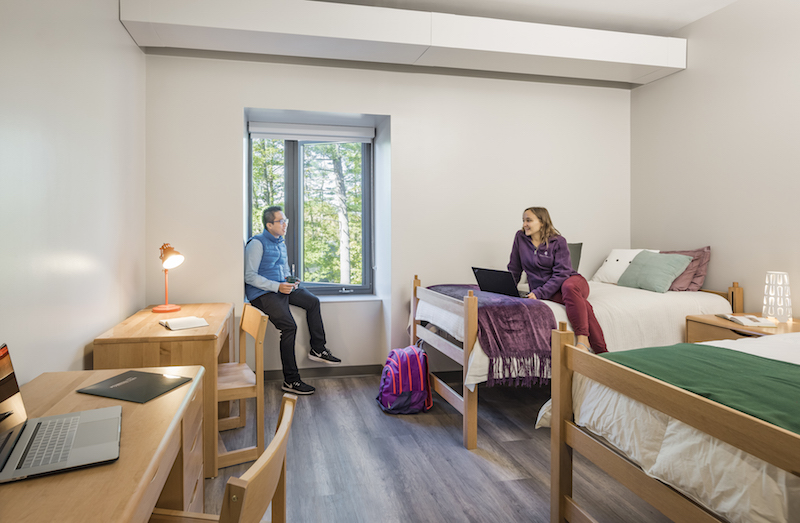
The student rooms will be rented as hotel rooms with King-sized beds. Image (c) Anton Grassl
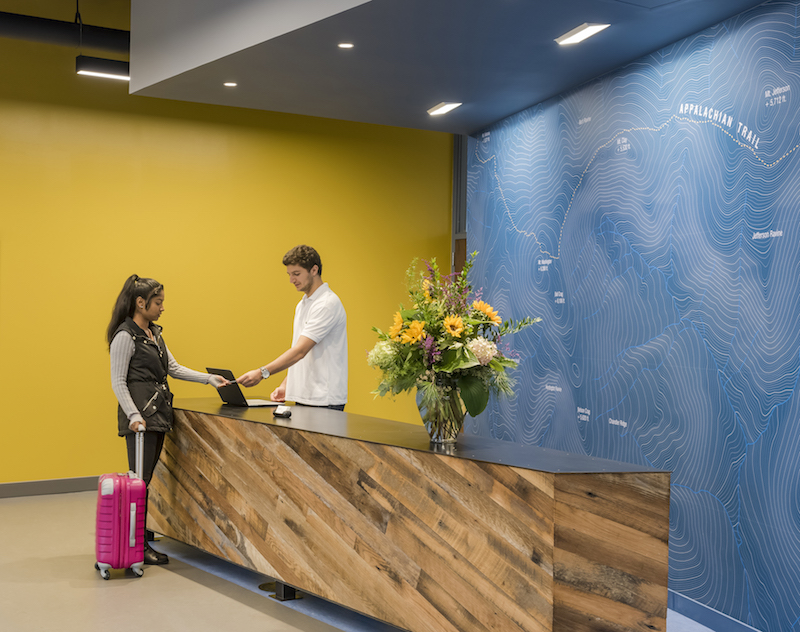
Reception and concierge areas are already built into Merrill Place. Image: (c) Anton Grassl
Along with P+W, the Building Team on this project included Engelberth Construction (GC), Odeh (SE), Longchamps Electric (EE), RFS Engineering (MEP/FP), and Studio 2112 (landscape architect).
Due to recent administrative personnel changes, PSU has been slow to start marketing Merrill Place as a summer season hotel, although de Angel says the school has started putting together its advertising for that purpose, which will include offering rental of hotel rooms and the conference center as a package.
“Aligning program and aesthetics with a revenue-generating model is increasingly critical to today’s budget-conscious colleges and universities,” says de Angel. “The students here have embraced this whole idea about a residence hall with a hospitality layer. And we came away thinking that we might be able to take a little bit of risk with our designs in the future.”
Related Stories
| Dec 10, 2013
Modular Pedia-Pod: Sustainability in healthcare construction [slideshow]
Greenbuild 2013 in Philadelphia was the site of a unique display—Pedia-Pod, a modular pediatric treatment room designed and built by NRB, in collaboration with the editors of Building Design+Construction, SGC Horizon LLC, and their team of medical design consultants.
| Dec 3, 2013
Creating a healthcare capital project plan: The truth behind the numbers
When setting up a capital project plan, it's one thing to have the data, but quite another to have the knowledge of the process.
| Nov 27, 2013
Pediatric hospitals improve care with flexible, age-sensitive design
Pediatric hospitals face many of the same concerns as their adult counterparts. Inpatient bed demand is declining, outpatient visits are soaring, and there is a higher level of focus on prevention and reduced readmissions.
| Nov 27, 2013
Exclusive survey: Revenues increased at nearly half of AEC firms in 2013
Forty-six percent of the respondents to an exclusive BD+C survey of AEC professionals reported that revenues had increased this year compared to 2012, with another 24.2% saying cash flow had stayed the same.
| Nov 27, 2013
Wonder walls: 13 choices for the building envelope
BD+C editors present a roundup of the latest technologies and applications in exterior wall systems, from a tapered metal wall installation in Oklahoma to a textured precast concrete solution in North Carolina.
| Nov 26, 2013
Construction costs rise for 22nd straight month in November
Construction costs in North America rose for the 22nd consecutive month in November as labor costs continued to increase, amid growing industry concern over the tight availability of skilled workers.
| Nov 25, 2013
Building Teams need to help owners avoid 'operational stray'
"Operational stray" occurs when a building’s MEP systems don’t work the way they should. Even the most well-designed and constructed building can stray from perfection—and that can cost the owner a ton in unnecessary utility costs. But help is on the way.
| Nov 19, 2013
Pediatric design in an adult hospital setting
Freestanding pediatric facilities have operational and physical characteristics that differ from those of adult facilities.
| Nov 19, 2013
Top 10 green building products for 2014
Assa Abloy's power-over-ethernet access-control locks and Schüco's retrofit façade system are among the products to make BuildingGreen Inc.'s annual Top-10 Green Building Products list.
| Nov 18, 2013
6 checkpoints when designing a pediatric healthcare unit
As more time and money is devoted to neonatal and pediatric research, evidence-based design is playing an increasingly crucial role in the development of healthcare facilities for children. Here are six important factors AEC firms should consider when designing pediatric healthcare facilities.


